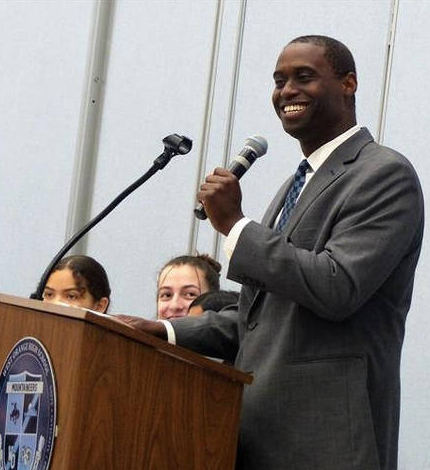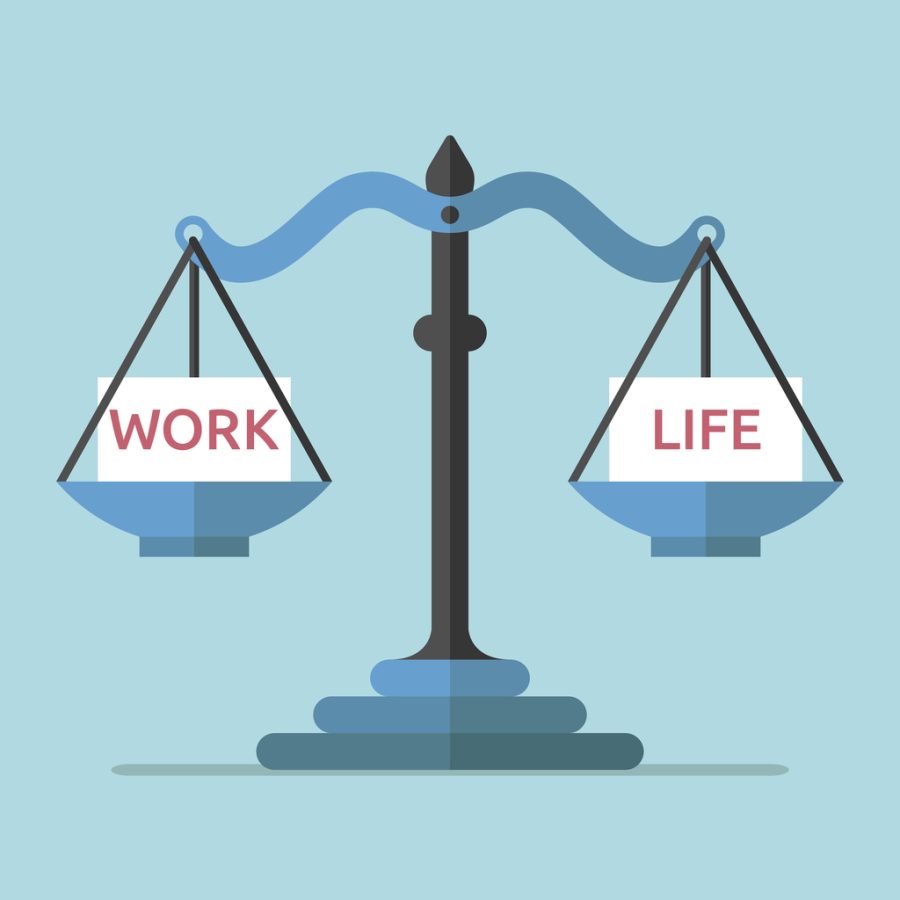Striking a Balance: Easy Tips for Managing School and Social Time
Scales weighing work and life on blue background. Balance, career, time management and stress concept. Flat design. Vector illustration. EPS 8, no transparency
“Happiness is not a matter of intensity but of balance and order and rhythm and harmony”–Thomas Merton
The above quote by Merton underscores the importance of balance and harmony in achieving happiness in life. The same principle is also applicable to resolving the age-old conflict between the pressures of academics and the lure and joys of socializing.
In this article, I will predominantly take a practical approach to achieving a work-life balance in high school, while touching upon the underlying philosophical premises. I will discuss specific techniques and strategies that can help students manage their time effectively, avoid procrastination, find a study group, and embrace flexibility. These techniques can minimize anxiety and help reduce the stress from unfinished tasks. My goal in this article is to help students achieve a balance between their work and social priorities and make their high school years a fulfilling and enjoyable experience.
Schoolwork should come first!
Schoolwork is a preparation for life, specifically, for facing and successfully overcoming challenges encountered at work and in life in general. As such, it should always take priority over social and extracurricular activities and engagements. Doing well on schoolwork is not only important for learning and acquiring knowledge, but it also develops qualities of hard work, focus, and perseverance. Arguably, these qualities hold the key to success in most spheres of life.
Making school work a priority can help one achieve efficiency and leave students with time to socialize and engage in extracurricular activities. Efficiency can be achieved with the help of two main techniques:
- To-do lists: It can help to create a weekly to-do list with time allocation for specific tasks and assignments. This can help students prepare well for exams by helping them stay organized and focused.
- Avoiding procrastination: Doing assignments and preparing for exams in a timely manner is the key to doing well and avoiding stress. Developing the habit of not procrastinating can help greatly in doing good-quality work and realizing one’s potential. There are specific techniques that can be adopted for avoiding procrastination, like starting with easy tasks, reducing distractions, and being reasonable with setting targets.
Scheduling social activities
Socializing is important for preventing monotony and burn-outs. However, it is important to plan well and keep track of the time spent socializing so that it does not conflict with and negatively affect academic work and performance. Here are some tips to manage work and social priorities:
- Planning ahead: It is imperative that social activities be planned according to time availability and by keeping the work schedule in mind. Effective and timely communication with friends can help find a time that works for everybody.
- Using downtime well: Time between classes, lunchtime, and other chunks of unused or under-utilized time can be used for socializing.
- Socializing within limits: The urge to socialize and spend time with friends can be overwhelming. It is important, however, to be honest with oneself and have a good understanding of the time available for extra-curricular and social engagements. Needless to say, socializing should not come at the expense of academic performance.
In sum, planning ahead, managing downtime efficiently, and knowing the time limits are good techniques for achieving work-life balance.
Efficient time management is key!
Managing time efficiently is crucial to strike a balance between schoolwork and social commitments. These tactics can help students manage their time well:
- Set realistic expectations: A common problem is taking on too many responsibilities and setting overly ambitious targets. Be pragmatic in setting goals. Having too many goals and tasks can be overwhelming and lead to frustration.
- Learn to say no! Friends can often be persistent and it is not easy to say no. However, one has to learn the art of saying no without coming across as rude and asocial. Similarly, saying no can help in avoiding taking on too many tasks which can set one up for failure and disappointment.
- Clean and orderly workspace: A cluttered workspace can be distracting and negatively affect one’s productivity. Set aside time for organizing your workplace and keeping it tidy and organized. This will motivate you to work and not avoid your workspace.
- Take short breaks: Short breaks from work can be rejuvenating and refreshing. Take timely and periodic breaks to take a stroll, chat with a family member, or simply enjoy the view from your window or from the deck. This will uplift your mood and recharge you for another session of work!
Avoiding distractions
Our technology-rich environment offers us many opportunities for learning and for enjoyment. However, it also creates a myriad of distractions that can lower our productivity. Here are some tips for avoiding distractions:
- Turn off social media: Avoiding social media during working hours is important to prevent distractions and the urge to constantly check for the latest update.
- Turn off phone notifications: Phone notifications can be very distracting. Turn them off, or better still, keep your cell phone in a place where it is not easily reachable when you are working on an assignment or trying to finish a task.
- A distraction-free workspace: It is important to have a space that is free of unwanted intrusions and distractions. A library or a study can be good places to work.
- Creating rituals: It helps to have simple rituals that can get one in the right mood and frame of mind for work. For instance, many famous writers have a favorite pen with which they write their first draft, or they may drink a cup of coffee or brew tea to get themselves in the mood for intellectual heavy lifting. You can develop habits of your own that can prime you for productivity.
Finding a study group
Whether it is exercise or work, being part of a group can help one to achieve motivation and maintain a routine. The specific tips below can help you use study groups for maximizing output and improving time management.
- Find classmates who are serious about work and have similar academic goals.
- Plan study sessions in advance: It is important that study sessions not be impromptu and ad hoc, and be scheduled and planned in advance.
- Use social media to communicate and schedule meetings.
Embracing flexibility
Life has a tendency to throw unexpected challenges and curveballs when one least expects them. Accordingly, one needs to be nimble in adapting one’s schedule and priorities in keeping with the changing circumstances. Here are some tips to be flexible.
- Be open to changes: If circumstances change, be open to changing your schedule and priorities. Rigidity is unproductive and will produce frustration.
- Communicate with others: Communicate with your friends, teachers, and family members about unforeseen situations. Most people are understanding and willing to acknowledge the challenges you may be encountering and to make adjustments.
In sum, achieving social and work balance requires attention to detail. These details include everything from one’s circle of friends, quality of workspace, time management, and flexibility. Ultimately, being a student means prioritizing one’s academic success over other competing non-academic and social engagements and priorities. However, using the techniques discussed above, one does not have to choose academics over social life. A balance is achievable provided one adopts a systematic approach to aligning various parts of one’s life so as to minimize friction and collisions.












































































